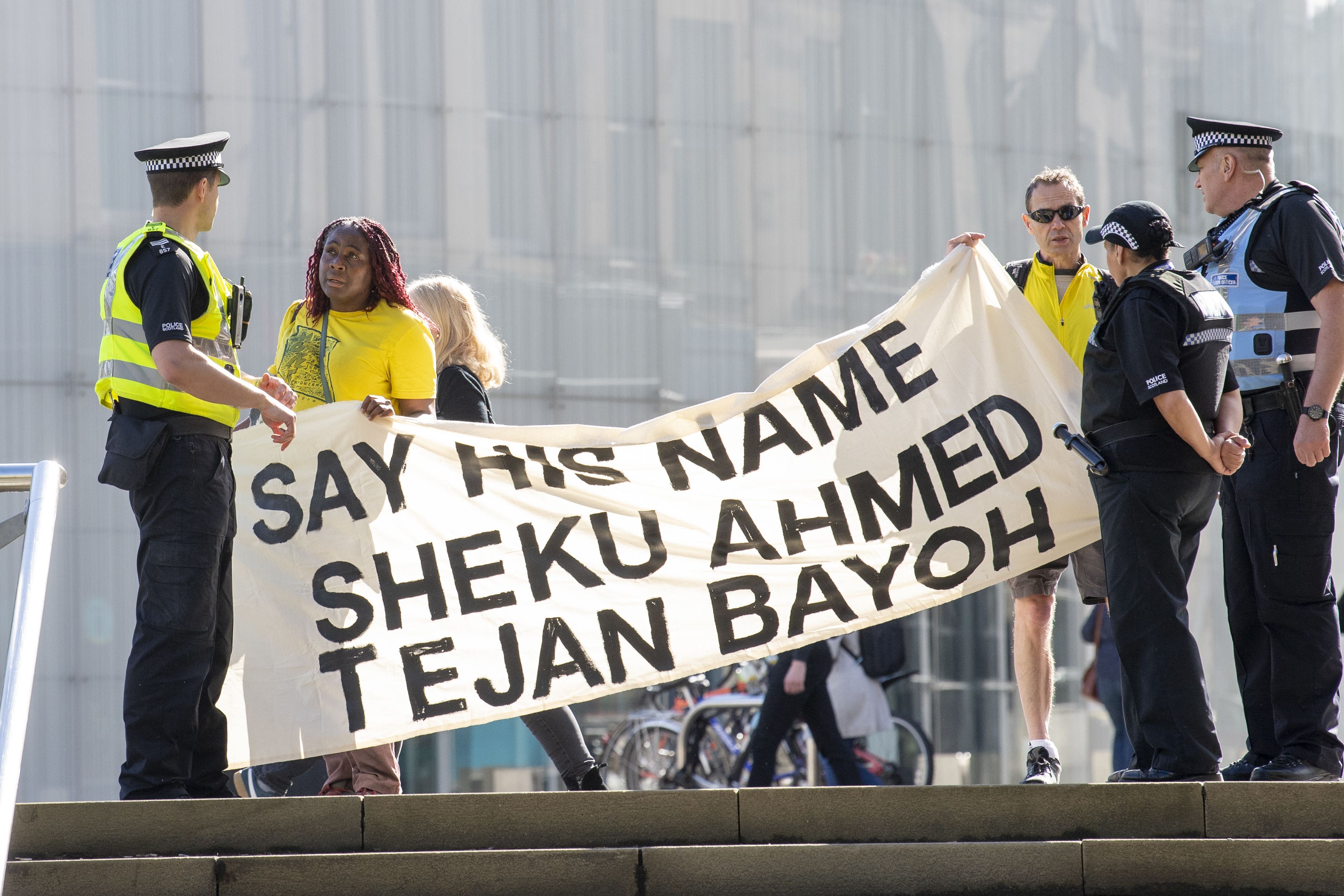Witness statements about Sheku Bayoh ‘inconsistent’, inquiry hears
Mr Bayoh’s family believe his race played a role in the way police handled him on the day he died.

Your support helps us to tell the story
From reproductive rights to climate change to Big Tech, The Independent is on the ground when the story is developing. Whether it's investigating the financials of Elon Musk's pro-Trump PAC or producing our latest documentary, 'The A Word', which shines a light on the American women fighting for reproductive rights, we know how important it is to parse out the facts from the messaging.
At such a critical moment in US history, we need reporters on the ground. Your donation allows us to keep sending journalists to speak to both sides of the story.
The Independent is trusted by Americans across the entire political spectrum. And unlike many other quality news outlets, we choose not to lock Americans out of our reporting and analysis with paywalls. We believe quality journalism should be available to everyone, paid for by those who can afford it.
Your support makes all the difference.A retired police inspector has said there were inconsistencies in witness statements taken minutes before Sheku Bayoh’s death.
Speaking at a public inquiry into the 35-year-old’s death, Steven Stewart said he was in a control room looking at updates on the incident coming in from members of the public.
The hearing, taking place at Capital House in Edinburgh, is investigating the circumstances which led to the death of Mr Bayoh after he was restrained by police in Kirkcaldy, Fife, on May 3 2015.
Mr Bayoh’s family believe his race played a role in the way police handled him on the day he died.
Mr Stewart was questioned on Thursday about his involvement in Police Scotland’s response to the incident.
He told the inquiry that while there were some consistencies about Mr Bayoh, such as him holding a knife, and details about his physical appearance, there were “some gaps” in witness statements.
Senior counsel to the inquiry, Angela Grahame KC, asked Mr Stewart to explain why he thought there were inconsistencies, contrary to what other officers have said in previous hearings.
The witness replied: “There were similarities in relation to the description of the male, and when you looked across the different incidents, I formed the view it was the same male that was being described … in terms of his appearance, clothing, having a knife, that was consistent throughout.
“But in terms of his actions, which were the important thing for me, some witnesses reported him as walking with a knife in his right hand, not behaving in an aggressive manner, not appearing angry.
There was an inconsistency in the behaviours and the actions he was taking at that time
“But other witnesses described him as being in the road, approaching cars and flailing his arms around.
“So there was an inconsistency in the behaviours and the actions he was taking at that time.
“That was the real inconsistency.”
The inquiry then heard transcripts of calls from witnesses read out, including one call which said “male is jumping in front of cars and stopping them”, with others talking about Mr Bayoh’s appearance.
Earlier, the inquiry heard evidence from retired PC Scott Masterton who was in the control room receiving calls and updates on the events which eventually lead to Mr Bayoh’s death.
Documents showed the first witness call made about Mr Bayoh was graded as a number two call, with number one being the highest, immediate priority for police to respond to.
Mr Masterton said the first call was graded incorrectly, adding: “It should have been a grade one call.
“The second one was a grade one call, and in my mind they are both high priority and I would have dispatched units as quickly as I can.”
The inquiry, before Lord Bracadale, has been adjourned until Thursday afternoon when it will hear more evidence from Mr Stewart.